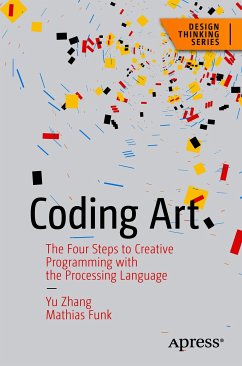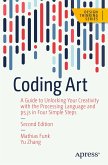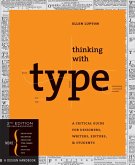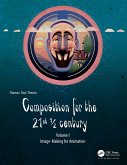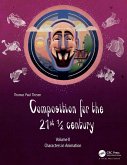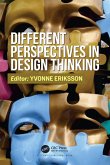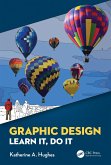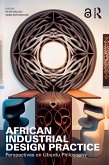Finally, a book on creative programming, written directly for artists and designers! Rather than following a computer science curriculum, this book is aimed at creatives who are working in the intersection of design, art, and education.
In this book you'll learn to apply computation into the creative process by following a four-step process, and through this, land in the cross section of coding and art, with a focus on practical examples and relevant work structures. You'll follow a real-world use case of computation art and see how it relates back to the four key pillars, and addresses potential pitfalls and challenges in the creative process. All code examples are presented in a fully integrated Processing example library, making it easy for readers to get started.
This unique and finely balanced approach between skill acquisition and the creative process and development makes Coding Art a functional reference book for both creative programming and the creative process for professors and students alike.
You will:
- Review ideas and approaches from creative programming to different professional domains
- Work with computational tools like the Processing language
- Understand the skills needed to move from static elements to animation to interaction
- Use interactivity as input to bring creative concepts closer to refinement and depth
- Simplify and extend the design of aesthetics, rhythms, and smoothness with data structures
- Leverage the diversity of art code on other platforms like the web or mobile applications
- Understand the end-to-end process of computation art through real world use cases
- Study best practices, common pitfalls, and challenges of the creative process
Dieser Download kann aus rechtlichen Gründen nur mit Rechnungsadresse in A, B, BG, CY, CZ, D, DK, EW, E, FIN, F, GR, HR, H, IRL, I, LT, L, LR, M, NL, PL, P, R, S, SLO, SK ausgeliefert werden.

